|
by Luv Mehta And here we finally are, with the last episode of Tennant’s tenure, as well as of Russell T. Davies as showrunner. If you haven’t read recaps for the previous seasons, you can do so here (for the first series), here (for the second) and here (for the third). So, how does this season compare to the rest? Let's find out! Before that, though, let's recap the ratings system and death levels again:-
Now, without further ado, let's start! Voyage Of The Damned So, the Doctor’s aboard the Titanic. Or, at least, a spaceship approximating the real thing. Gee, wonder what its fate will be? As usual, though, all the supporting characters are fully sketched and realized three dimensional characters - with the exception of that one annoying businessman. Kylie Minogue’s the temporary companion for this one, and she doesn’t do a bad job at all. It’s funny seeing how the childlike wonder of the setting clashes so hard with the relentless brutal ways the majority of these characters die, though. We’ve got people literally committing suicide because their significant others died, we’ve got a spaceship with the majority of the passengers dying, and then we’ve got a goofy villain with a robot body, and the image of the Doctor flying above with the help of robotic angels. I’m not quite sure what to make of all that, but I was entertained throughout. Also, it’s quite nice to see a bit of extra continuity with the rest of London shutting themselves up in their homes, because of their past two Christmases being disasters. Death Level: War Crimes, for almost all of the passengers and crew of the ship dying. Rating: Good, But Flawed. Partners In CrimeOh god no that annoying temporary companion from The Runaway Bride is back - hey, she’s much more subdued and likeable this time! If there’s one thing about this episode, it’s that, even with the plot feeling inconsequential, it’s extremely funny. While it’s annoying to see the Doctor and Donna keep narrowly missing each other as they investigate the same thing, having that moment where they wordlessly and excitedly try to speak with each other across a room makes it worth it. And it’s great to see her actually using her brain this time, instead of remaining staunchly aloof and dumb. The adipose creatures are memorable as well, especially with that ending. It’s unclear how much murder was committed at the end, though, and the story doesn’t seem to care all that much about it, which sours the experience somewhat. Still, a pretty good opener to the season. Death Level: Let’s keep an optimistic toll of a few deaths, and make it Quick And Easy. Rating: Fantastic! The Fires Of PompeiiThis is an episode that’s almost a Sci-Fi Classic, if not for a few egregious faults. Let’s start with the positives first. The setting of Pompeii is very well realized, and it’s nice to see a couple of actors that will apparently return some day. The word games of intelligence between the Doctor and the Roman augur are fun to watch. The scheme is built up very well, and when it gets to the eventual decision point where the Doctor and Donna have to decide to blow up Pompeii to save the rest of the world, it’s an incredibly gutsy move on the part of the show to have them make the decision, and still have to work their way through the city and its myriad citizens, scared out of their wits, running from danger, men, women and children alike, with the knowledge that they’re all going to die horribly. Even that last moment with the Doctor and Donna in the TARDIS, where the latter breaks down completely and asks him to just save someone, anyone, is very powerful. Catherine Tate continues to amaze in her new role, and it’s understandable seeing how she’d react to the situation, too - this is literally her first day on the job as the Doctor’s companion, and she’s already been forced to take part in a decision to commit mass murder. I’ve got two huge problems with this story, though. Firstly, for a story building up to the inevitable destruction of the city, it could have done a whole lot more to build up a melancholy tone to the proceedings, instead of forgetting the inescapable conclusion until right near the very end. And secondly, and much, MUCH more annoyingly, there’s the post-destruction cutesy bit showing how the world “volcano” was invented. Not only is it completely unnecessary, it completely ruins any effect the till-then devastating scene had. Death Level: War Crimes, for obvious reasons. Verdict: I’m going to have to go with a Good, But Flawed for this one. Planet Of The OodIf there’s one problem I have with The Impossible Planet/The Satan Pit from season two, it was that the fate of the possessed Ood was ignored, with a throwaway line by the Doctor about how he didn’t have time to save them. They were a fantastic concept, though, with a design that was simultaneously cute and creepy, and it’s great to finally see an episode focused only on them. And boy, does it deliver. The Oods’ concept always had a distinct link to the theme of slavery, and it’s used to its fullest extent here, with the selfish exploitation of their race by the humans resulting in a civil war that takes various forms, from all-out aggressive fighting to subterfuge and conversion. And they still manage to be simultaneously creepy and likeable, even with the scary designs of the rabid Ood. The translation spheres actually replacing their brains is a great detail, too. Also, does Series Four have a higher budget or something? The episode looks incredible, with the snow falling across the beautiful slopes and the harsh factories, and the battle scenes look great too. All in all, a pretty great episode. Death Level: Dying In Extreme Agony. Rating: Fantastic! The Sontaran Stratagem/The Poison SkyWell, back to an okay episode. The Sontarans are okay opponents. The stakes are high, but it still doesn’t feel like there’s any way for Earth to actually be destroyed by them. That snotface kid is dumb enough to believe in the Sontarans when they trick him into working for them, but he makes a heel face turn, so it’s okay, I guess. What’s actually interesting about the episode is how, for an episode of a Sci-Fi series, it’s surprisingly wary of new technology and of the young technological genius archetype. The ATMOS systems are dangerous assassination systems that ultimately drown the world in poisonous gas, and Rattigan is a misanthropic kid who doesn’t mind the world getting destroyed because he can’t feel empathy for other human beings. Also, Martha’s back! Much more confident than before, with her irritating crush on the Doctor removed, she’s a far better character for it, and even Donna helps her through her confusion by making fun of the Doctor with her. It’s a shame, though, that Martha spends the majority of this story as a captive, although Freema Agyeman gives a good performance as her doppelganger. Additionally, it’s great to see that there are no forced romantic interactions with Donna and the Doctor, with them just being very good friends, and being able to help each other through their problems. Death Level: War Crimes, for the human beings who probably suffocated to death, and the blown up Sontaran ship. Rating: This story’s still Okay, If Unexceptional. The Doctor’s DaughterWell, we’re back with another great episode. The concept of the Doctor having a daughter is fascinating, and it’s great to see him grapple with the implications of someone other than him being the successors of the Time Lords, while, at the same time, not wanting to get attached because of her being a clone soldier, and because of her reminding him of his lost home too much. And the daughter herself, Jenny, is a great character, fun and full of energy, smart and curious, and it’s great to see her blast off into the unknown in the end. The conflict between the humans and the fishmen (I’m not calling them the Hath, they’re fishmen, c’mon) is intriguing too, with the twist about the war having only lasted a few days being pretty strong. The finale, where the Doctor, full of rage and righteousness, stops himself from taking revenge, shouting at them to take his example of peace to build their civilization, is fantastic as well. I’m quite sure by now, though, that the show doesn’t care for Martha much. She’s pulled away from the main story for a long time again, and while her scene with the fishman’s sacrifice is nice, it doesn’t really matter to the story overall. All in all, though, a great episode. Death Level: War Crimes, for the implied deaths of thousands of soldiers in the civil war. Rating: Fantastic! The Unicorn And The WaspAgatha Christie! A mystery drawn in the classical style of her novels! Early 1900s England! A giant alien wasp! Very little could go wrong in such a setting, so is it much of a surprise that this story also turned out to be great? Granted, the show doesn’t really delve all that deep into Agatha Christie’s character (I don’t think any historical figure’s been able to till now, save for The Unquiet Dead and Charles Dickens), but the story’s fun enough to pull the whole episode through. The wasp is an idea that’s ridiculous enough to mess up really badly, but they make it work. And the whole scene with the Doctor’s cyanide poisoning is an instant classic. I will say I wished the mystery had a higher number of elements that arose naturally from the plot, instead of being brought up at the last minute. Additionally, what is it with Doctor Who and implications of weird sex? We’ve got a woman having sex with an alien wasp disguised as a human being here, for god’s sake. Ultimately, though, this episode is well directed, well shot, well acted, and really, really funny. Death Level: Dying In Extreme Agony, for the victims of the Wasp. Rating: Fantastic! Silence In The Library/Forest Of The DeadWhen I heard about Moffat taking over as showrunner from the next season, I was over the moon. This guy’s been the most consistently great writer so far, belting out Sci-Fi Classics one after the other, every season. So, how does his last script in Davies’ Doctor Who fare? Well, this just might be his best one yet. What’s so astounding about this two-parter is the sheer number of amazing sci fi concepts packed in. From the concept of ghosting, to saving people via teleport in hard drives, to the terrifying Vashta Nerada, to the giant library, the virtual life lived through fast forward, and most brilliantly, to the character of River Song. It’s something that makes you smack your head really hard and say, “Of course!” Of course the Doctor won’t meet people in the right order throughout his life, he’s a goddamn time traveller. Of course he wouldn’t warm up to someone he apparently trusts with his life in the future. And it’s all perfectly conveyed via Alex Kingston, who plays River to perfection, showing the heartbreak that would come from watching the man you love not even knowing you, to the snarkiness and determination that makes us believe the Doctor could fall for her one day. The supporting characters are, as usual, well written, with Strackman Lux’s secretive millionaire persona subverted with the ultimate reveal that he just wants to care for his family. The scene with Miss Evangelista’s death and subsequent ghosting is brilliant (special props to Catherine Tate here, giving a performance that’s simultaneously horrified, devastated and sympathetic). All the scenes with Donna and her husband are touching, and that ending, with her husband unable to call out to her, is devastating. Special mention needs to be made for the poetry in River’s death, and how the first time he’s ever met her is the last time she’s ever going to meet him. It sets up a fantastic story I can’t wait to see more of. And how badass was the Doctor in the end, with the Vashta Nerada? The crew had been dying out, one by one, and he’d been driven to his limit, so he openly threatened and scared them off with his mere reputation, delivering what might be the Tenth Doctor’s most badass line till now. “I’m the Doctor, and you’re in the biggest library in the universe. Look me up.” Death Level: Dying In Extreme Agony, for the team members eaten by the Vashta Nerada. Rating: Sci-Fi Classic. Series Four’s been extraordinarily strong till now, and we’ve had our first classic story of the season. Can the series sustain this momentum? MidnightHoly shit, it really can. After the previous high-budget filled-to-the-brim story, we get a minimalist companion-lite story focused on the Doctor, mostly set in a single location, where the terror is unseen and mostly psychological. Which is fantastic, because this is scripted by Davies, who always manages to make supporting characters feel completely real, no matter how his stories end up in quality. I don’t think he’s ever gone this completely dark, though (even Utopia/The Sound Of Drums/Last Of The Time Lords was much more nihilistic, it did end with Jesus Doctor reversing a year of brutal oppression), since what he’s done here is take an otherworldly entity, never explained in much detail, and used it to show how herd mentality and hysteria can make people do the cruellest things. All the characters here are extremely realistic, and as the circumstances turn from bad to worse, we see them change and break appropriately, with the wife using emasculation to anger her husband into becoming a murderer, and the professor shouting and belittling his assistant because she doesn’t support his arguments. Also, what must surely count as an achievement is how they use the old, stale trope of repeating what the other person said, and changed the purpose from comedy to horror. It’s inventive and it’s horrific, seeing the the Doctor stuck, terror in his eyes, his voice taken away from him, stuck repeating the creature’s sentences. What shoots this into the upper echelons of even the Sci-Fi Classic episodes of Doctor Who, though, is how this episode essentially proves that the Doctor’s beliefs in the goodness of humanity, as well as his sense of wonder and curiosity with new species, as being unwarranted and needlessly optimistic. Like Human Nature/The Family Of Blood, it serves as an indictment of the Doctor, showing how his usual confident know-it-all manner of dealing with situations, untempered by a companion’s grounding, alienates him from the very people he wants to protect by inadvertently belittling them. And how a normal, scared and anonymous person can end up doing the right thing and saving everyone instead. In conclusion, holy shit. Death Level: Dying In Extreme Agony, for the people burned to death by the sun of Midnight. Rating: Sci-Fi Classic. Turn LeftBefore I gush about yet another brilliant episode (seriously, what is up with this season?), I gotta admit, the framing device of this story’s a little weird. So anyone can end up in an alley, have their life changed, and have the whole universe being affected in return? Although the Doctor does say that what happened to Donna was unusual, spawning an entire universe around her, so I’ll take that. We’ve got yet another relentless, dark and brutal story, and this one involves a singular decision that changes the fate of the entire universe. Donna Noble turns right one day, instead of turning left, and the Doctor dies because she wasn’t there to save him from himself. And all the people he’s ever helped save start dying off, one by one. And pretty soon, the death count goes to astronomical levels. Literally. This is a Doctor-lite episode, contrasting the previous story - and I’m calling it. Donna is the best companion the Doctor’s ever had, not just because of her snarky and brash behaviour or her kindness, but because, frankly, Catherine Tate is absolutely killing it in her role. Billie Piper shows up to play Rose again, and her character growth and badassery is nice to see and all - but with Tate sharing screen space with her, she’s completely overshadowed and outclassed. The scene with Donna catching a glimpse of the beetle is a highlight, as is the scene where she gradually realizes she has to die to save the Doctor. Also, Wilfred Mott’s character’s grown to be a pretty great character in his own right, hasn’t he? The whole Doctor-less Earth scenario is also played mercilessly straight. The Racnoss didn’t destroy the Earth, sure - but the crash of the Titanic destroyed the United Kingdom, making it a third world country open to fascists, with no help from the US because of the adipose murders relocating there, with no reason to stop at a few hundred deaths. Death Level: A reversible universal Genocide. Rating: Sci-Fi Classic. It’s great to see three - THREE! - Sci-Fi Classic stories play one after the other. This season is INSANE! Can they maintain the momentum they’ve built up so far for the finale? The Stolen Earth/Journey’s EndOh. So they apparently can’t. Let’s, uh, start with the positives, shall we? So, erm, the characters all return, which is nice, I guess (Martha’s separated from the others AGAIN and wasted AGAIN). Harriet Jones’ final scene is great, since she still believes in her decision and stands by it (which is understandable, since not everything people should do for the safety of the world has to be necessarily nice), and her sacrifice is appropriately moving. Also, while Donna’s final fate is sad, it’s understandable and bittersweet. Right. We’re done. Can we talk about how profoundly stupid this two-parter is? I don’t care that the whole thing was built up throughout the season with snippets of dialogue about lost planets and moons and shit - the Dalek transportation gambit is stupid. You’ve transported Earth and other planets into a universal rift with no accompanying sun or gravitational rift - I realize that Doctor Who isn’t always the most scientifically accurate show, but to do something this flagrantly dumb? The villain, Davros, suddenly pops out of nowhere - no, you can’t tell me he’s a classic Who villain and his return means something, there’s no buildup or foreshadowing or even one fucking mention of the guy! The idea of the crazed Dalek oracle is stupid, as is his sudden betrayal of the Daleks - and every stupidly goofy shot he appears in is clearly meant to be menacing, and it makes me ashamed I’m watching a show with salt shaker aliens pretending to be the most dangerous aliens in the galaxy. Didn’t a single Dalek in the episode Dalek (back in the first series) convince us better about how dangerous its species could be? Oh, and the whole buildup to why Donna’s the most important woman in the universe? She gets reeeaaaallly smart, y’all! Stray regeneration energy and stray electricity makes her smart and able to help the Doctor(s) out in their plan! And then she’s gotta be jettisoned anyway because we can only have one massively smart guy in the room. What a goddamn waste. And hooo boy, we gotta get to the second Doctor, don’t we? Tennant’s acting is great, distinct enough to make us know which is which, but is his decision to destroy the Daleks so wrong that Doctor The First has to get so fucking offended? What the hell was his plan anyway, make speeches at a massive genocidal race till they spare all the planets and teleport them away? And then the stupidest, most offensive thing the show’s ever done - Doctor Prime throws away Apparently Mad Doctor to Rose as table scraps in the alternate universe. “I love you, Rose, but I’ll never get old. Here’s this violent clone of mine I hate and abhor, use him as your sex prize. You may thank me now.” Ugh. Such a great season and it had to end with this clunker of a finale. Death Level: For all the people vaporized from all the planets, it’s gotta add up to a Genocide, right? Maybe. I guess. Ugh. Rating: Slitheen Farts. Now, on to the specials. The Next DoctorMeh. Rating: Meh. Alright, alright, I’ll write more on this, but I really don’t know what I can say about it. Jackson Lake being the next Doctor is a nice fakeout, and his emotional arc works well, though to have it end around the halfway mark and start up again when he’s got to remember his son to save him seems stupid. The majority of this story concentrates on the Cybermen almost taking over the world with a large Cyberman megazord or some shit. I’d talk about how such a massive event wouldn’t really be forgotten by human beings, but I can’t even muster the rage required to do it, because my only question is this - how can you make a giant Cyberzord march across 1800s London and, somehow, make it boring? Death Level: Dying In Extreme Agony, for the cyber conversions. Planet Of The DeadWell, this one’s slightly better. This is the first collaborative script in NuWho, and it kinda shows. There’s no clear focus in the story, although the desert set looks very nice. Michelle Ryan’s fine as the new temporary companion, although Donna’s absence is keenly felt - especially at the end, where the Doctor refuses to take her along, because everyone who travels with him experiences a life of pain. The planet devourers are an okay enough choice for the antagonists of this episode, though I gotta wonder why the Doctor couldn’t have saved the planet they last ate - there’s no clear indication of when he can and can’t reverse time to save the world, is there? And they’re still out there, ready to devour other planets. Ah well, don’t think too much about it, I guess. There’s a prophecy by a woman, though, about the Doctor’s song ending, and about someone knocking four times before they kill him. Which, if it happens, would be a welcome change of tone, because the last couple episodes haven’t been all that special. Weren’t these planned with a higher budget and more time for scripting? Death Level: Aftermath of a planetwide Genocide. Rating: Okay, If Unexceptional. Come on, Doctor Who, you’re better than this. Get going already. The Waters Of MarsHOLY FUCKING SHIT. The Doctor, on his journeys, happens to come across the first ever human colony on Mars, and realizes he’s come across a situation similar to what he went through in Pompeii - all the people aboard the Mars station are doomed to die on that very day, and there’s nothing he can do. It’s imperative that the colonists die, to inspire humanity to advance through the stars, but he has to let it happen. Unlike the Pompeii episode, this one knows how to balance the light hearted moments and the sense of inevitable doom. A HUGE coup is having Lindsay Duncan as the temporary companion of this story, playing a character who’s a legend in her own right, and critical and threatening towards the Doctor, while still having a soft side that makes her want to save everyone. Her scene with the Doctor, as he tells her of the future of Earth, and all the wonders her descendants will encounter, is similarly brilliant, as is the scene where she forces him to tell her about her fate. The Flood, too, are great villains, tapping into the paranoia of having water as an antagonist, with extremely creepy cracked-face designs for the possessed humans. And as the colony descends further into chaos, inching closer towards its eventual fate, there’s a sense of dread expertly shown through extremely well-directed scenes. And as the Doctor has to leave the station, with the cries and screams on the radio playing across his ear through the spacesuit radio, it’s already a solid contender for Sci-Fi Classic status. We’ve seen him forced to see all the humans in his life have their lives destroyed, we’ve seen him suffering from PTSD over his dead species - something else he helped happen. We’ve seen him get to know his own life is ending. And now, as he walks away from the colony, with nothing he can do, we’ve never seen him more alone. And then he snaps. And this episode becomes the best Doctor Who has ever put out till now. For the first time, the Doctor changing time to save people is shown as a terrifying decision, callously dooming the Earth’s future to save a handful of human beings to feel good about himself. His depression and self-hatred have finally taken a toll, and he simply doesn’t give a fuck anymore - he simply does what he’s good at, what makes him happy, and damn the rest. And then they return to Earth, just in the nick of time, as the station explodes. And the best, most disturbing conclusion to a Doctor Who episode ever takes place, with the megalomaniacal Doctor, drunk on power, dangerously confident in his right to change whatever he sees fit across time and space, shaken back to reality as Captain Adelaide Brooke, the legend, the woman once desperate to live despite the odds, commits suicide, in an explicit act of rejection of his actions. Is this episode perfect? Not really, there’s an annoying robot, the actress playing Mia isn’t all that great an actress. But those are minor quibbles in an episode that’s absolutely batshit insane and brilliant. Death Level: Drying In Extreme Agony (pun not intended) (okay it was a little intended). Rating: Sci-Fi Classic. Goddamn does it feel good to give that rating out again. The End Of TimeAnd there the goodwill goes again. To be fair, I won’t say it’s a horrendous episode. Wilfred ends up being the temporary companion for this one, and he’s fantastic. Tennant and Cribbins play very well off each other, and both their conversation scenes, one in the cafe, the other in the spaceship with the gun, are brilliant. The whole scheme involving turning the whole world into copies of the Master, though? So goddamn stupid. Why does the Master always get stuck with humongously flawed storylines? John Simm does a great job as the Master, he deserves better. His turn as a ravenous man-eater with lightning bolt powers and string jumping abilities seems too weird even for a show like Doctor Who, and all his plotline seems to be is a delaying action till the Time Lords come back. And yeah, the Time Lords come back. Timothy Dalton as the President? A brilliant casting coup, and even with the limited time he’s given, he steals all the scenes he’s in. And his scheme’s demented enough to make us believe the Doctor would have no choice other than to destroy the Time Lords. The old woman looking out for the Doctor pops up, unexplained, but I like this part of the story, with her remaining an enigma, saying she was “lost a long time ago”, and looking out for him - and his look of sad recognition and quiet acknowledgement as he sees her. I’m calling it, she’s his mother. I know it’s left open ended, but c’mon, she’s clearly his mother. For the rest, though, the conclusion is an overwrought back-and-forth with the gun, lasting too long, till the Master suddenly has a change of heart and blasts the President with his electric bolts. Oh, but what happens afterwards is in a league of its own, so let’s cover that later. Death Level: The Doctor dooms his species, again, to a Genocide. Rating: Slitheen Farts. But wait, there’s more! (The End Of) The End Of TimeIt’s technically cheating to include the last fifteen minutes as its own entry, but screw it, I’m writing this article and I can do whatever I want. Whatever you may say about The End Of Time, it was all a countdown to those four knocks - and how gloriously cruel it is to have Wilfred be the one to knock. It’s been an amazing time spent with the Tenth Doctor so far, though, with him elevating the weakest scripts with moments of pure joy, and being completely intrinsically linked to the strengths of the best. He’s been fun, full of joy and optimism, while still, on occasion, allowing himself to be cruel, merciless and demented. He’s embodied the best of all the Doctor can be, as well as the worst. And his last moments show that perfectly, as we know he’s going to sacrifice himself the moment we see Wilfred in danger of dying - and so does he. It’s a moment of inevitability he’s railed against all this while, and as he lashes out at fate and at his own nature, he comes across as pathetic, wanting to be selfish above all, while still being unable to do so. It’s the decision John Smith made, all that time ago, and it’s one the Doctor makes now, raging against the dying of the light, even as he steps into it. And though his final moments may be a tad overwrought, with yet another cameo scene with all the people he’s met till now, it’s still fitting. All the lives he’s touched and helped change, all the people he’ll never see anymore - I dunno, but there’s surely poetry in that. And as the Ood sing to him in the end, accompanying him to his death, we say goodbye to a flawed, deeply broken man, who did the best he could to help all the people he ever met. “This song will end, but the story never ends.” And here we are, at the end of Davies’ era. What a ride, ladies and gentlemen. Here are the top three episodes, taking the fourth season and the specials together:-
Till we meet again, Whovians.
Follow us on Facebook and Instagram to be notified whenever we release new articles.
Do you use an RSS reader? Even better!
1 Comment
|
Categories
All
Archives
December 2022
|
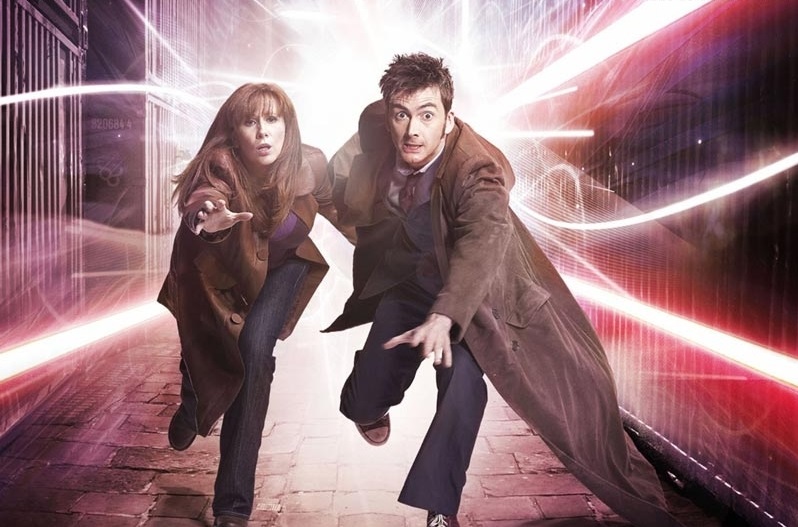
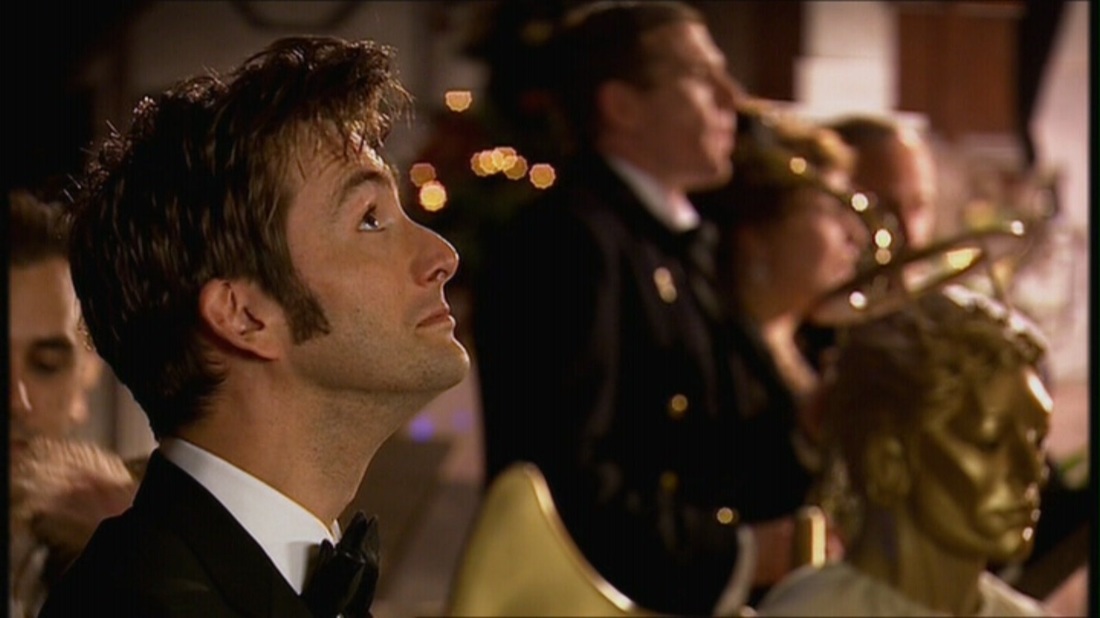
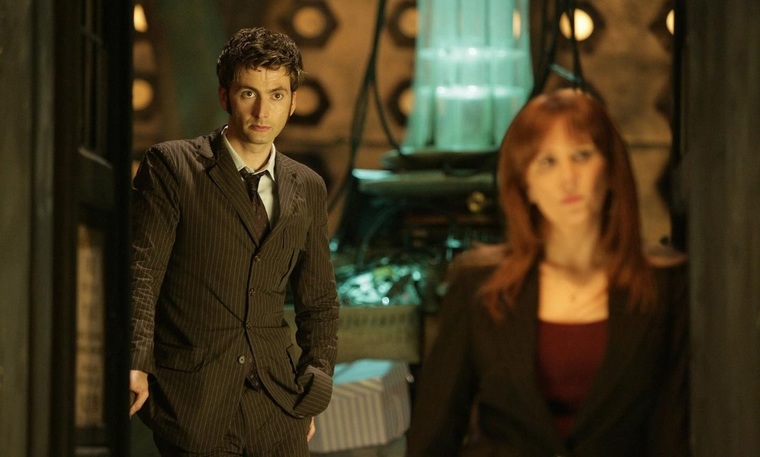
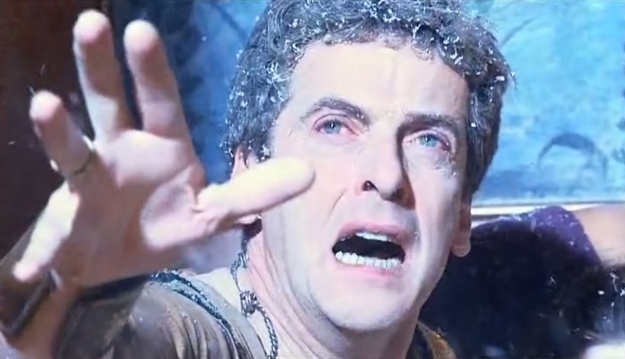
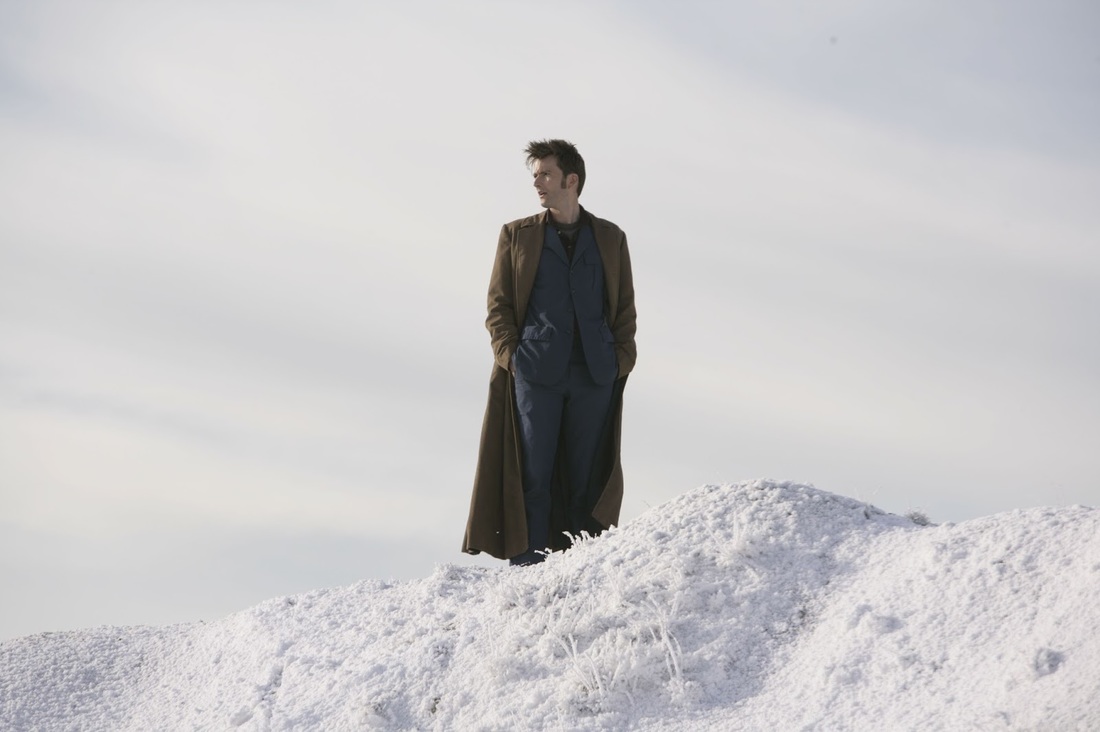
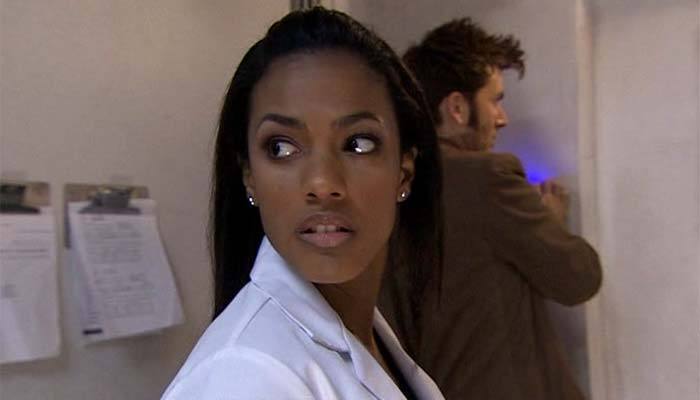
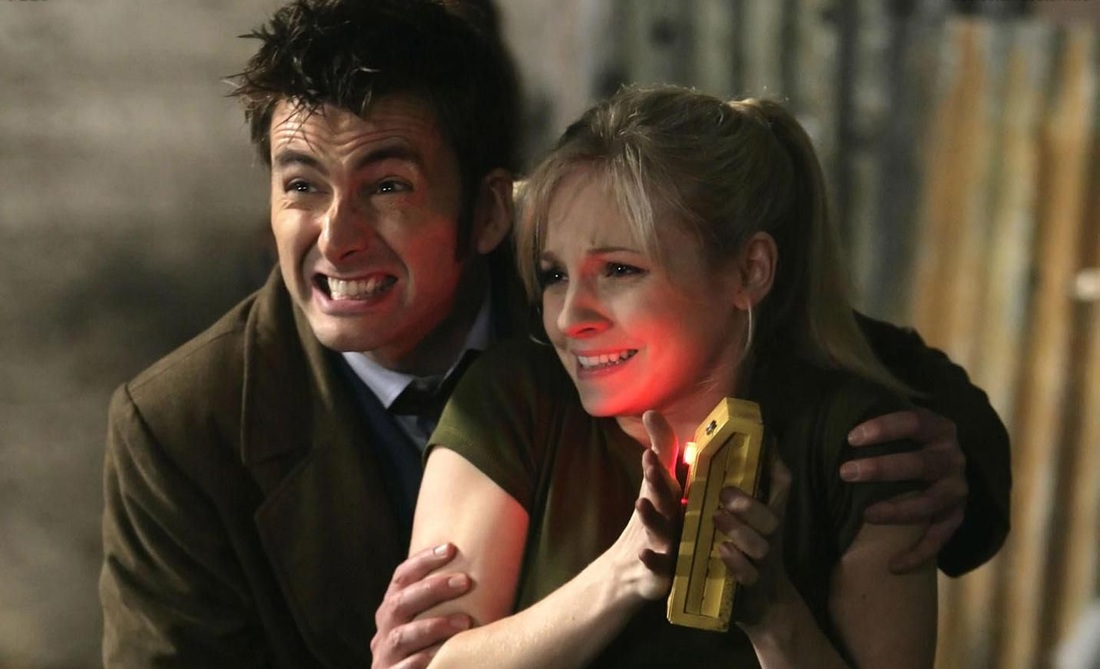
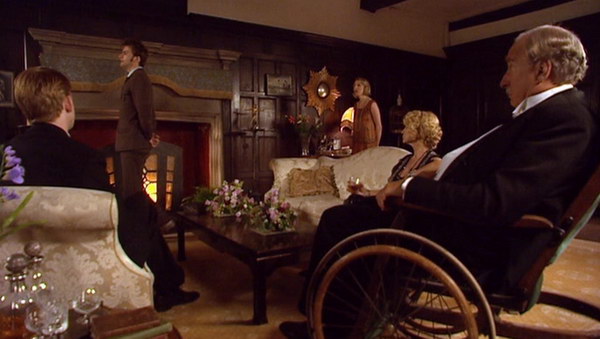
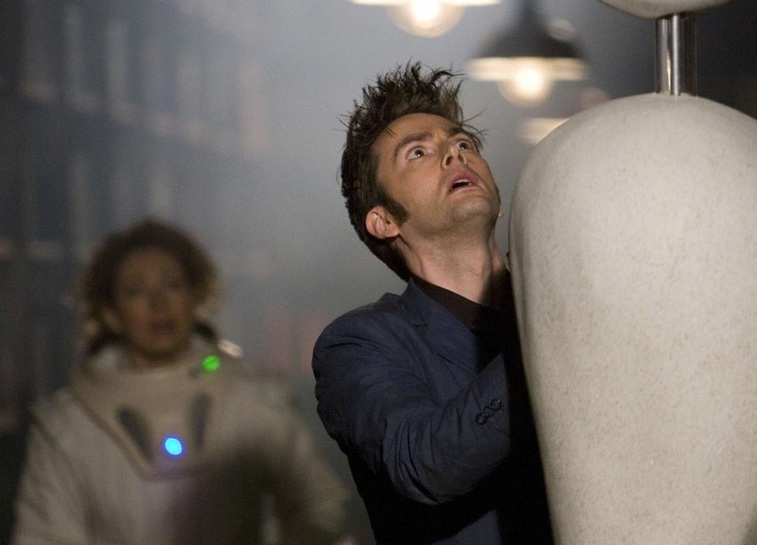
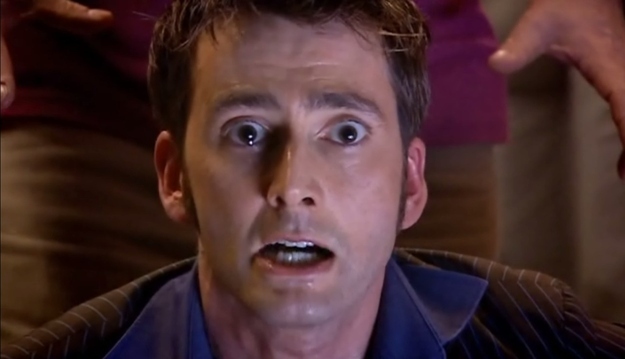
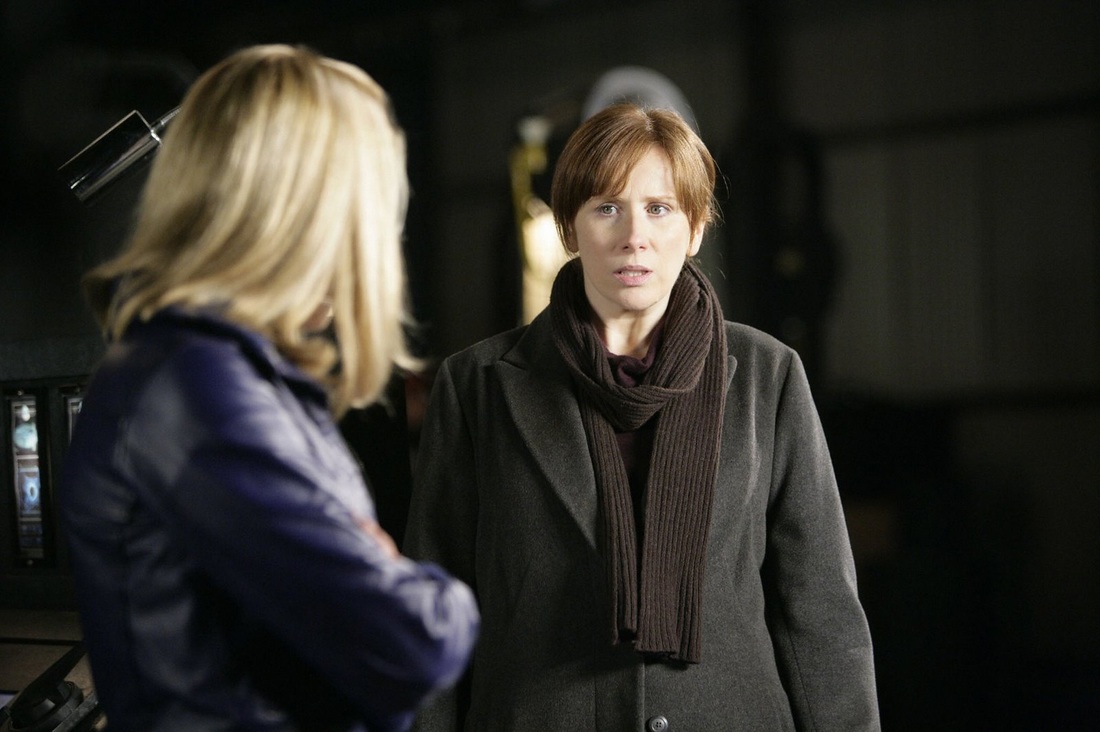
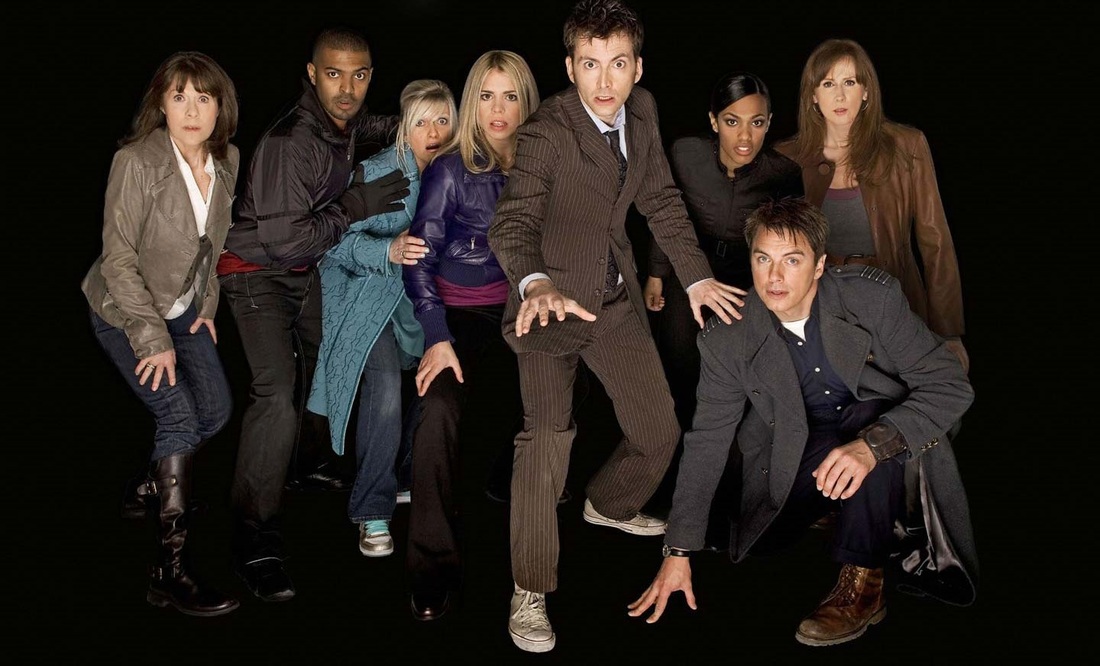
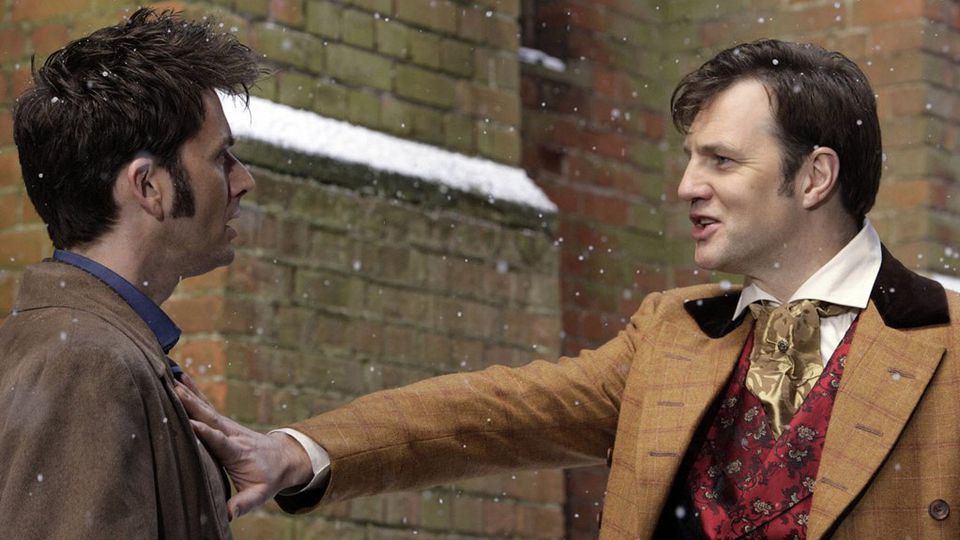
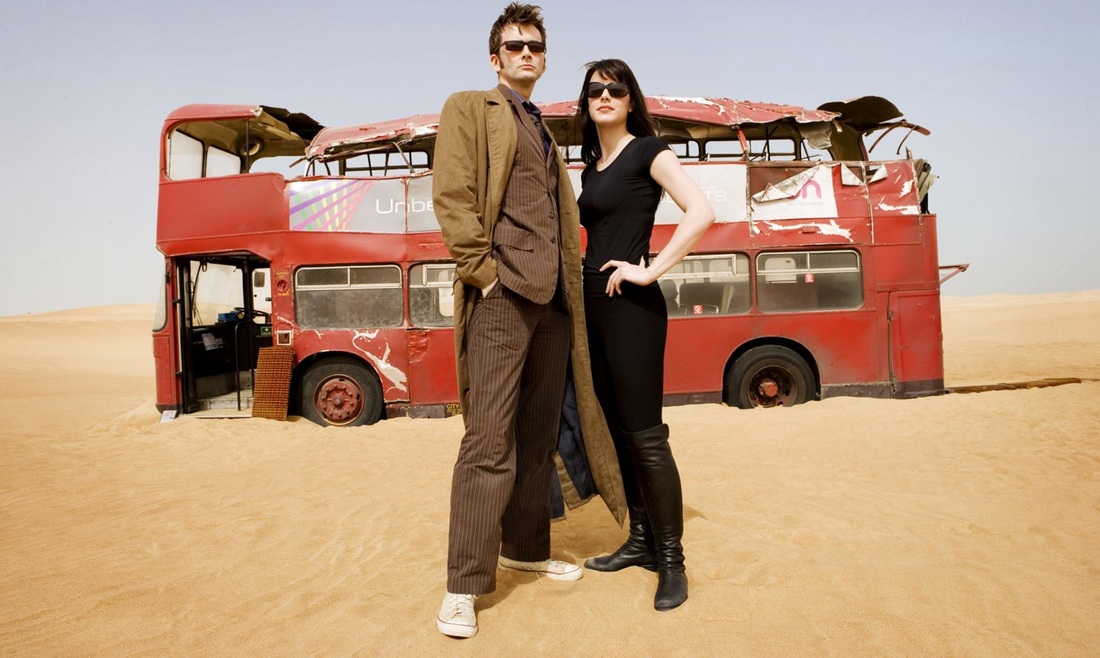
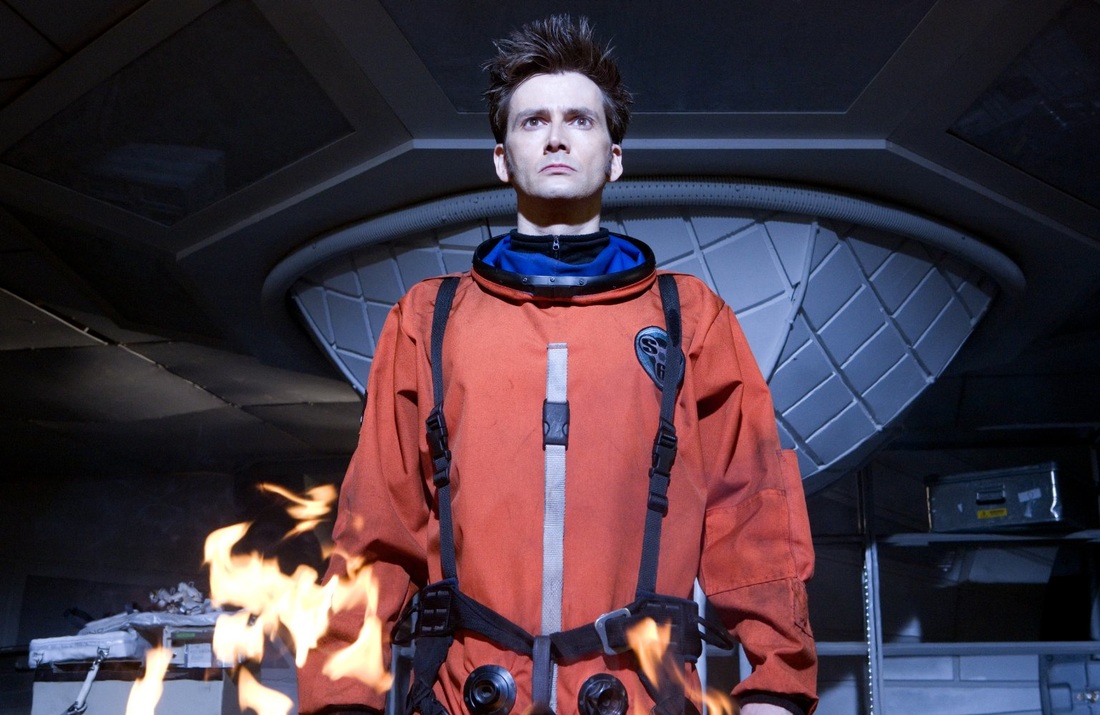
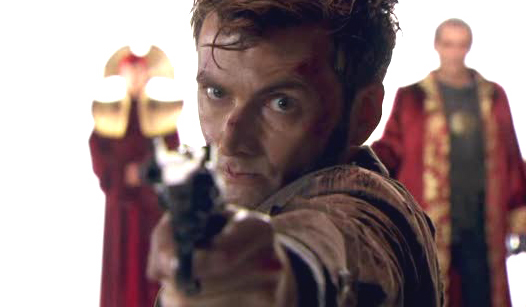
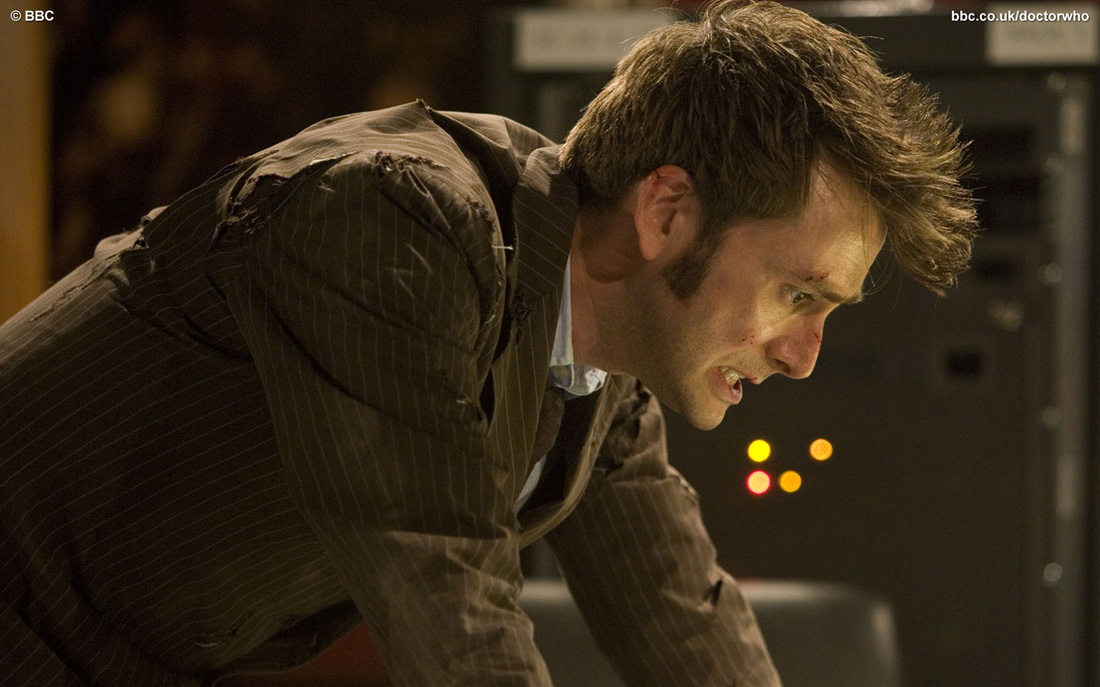
 RSS Feed
RSS Feed
